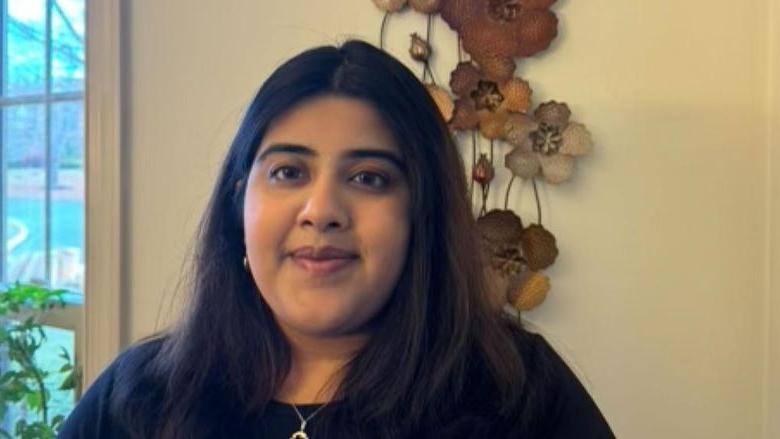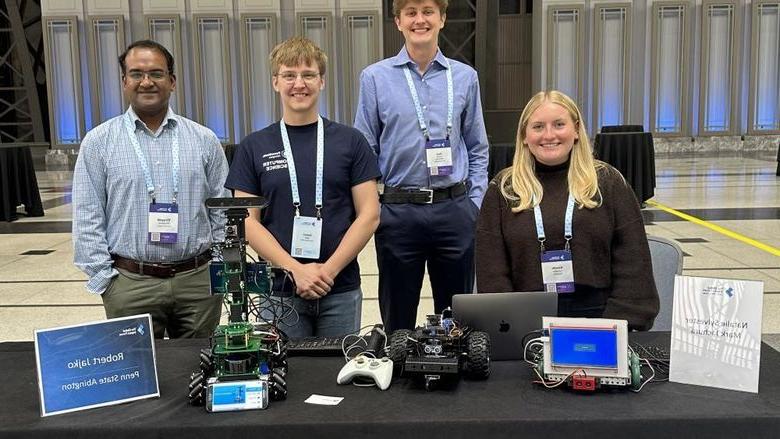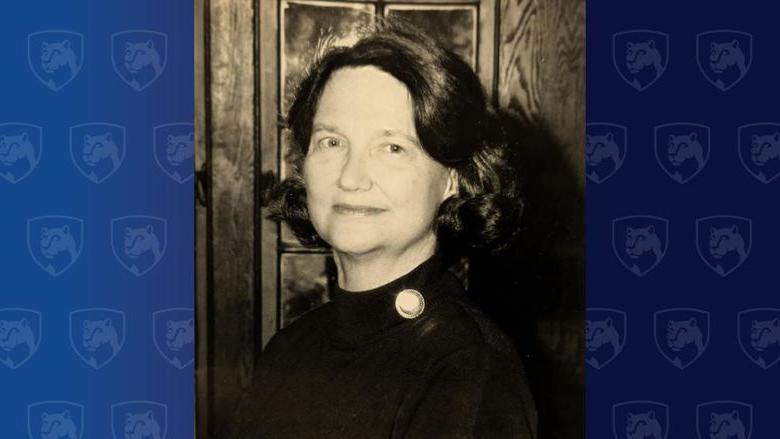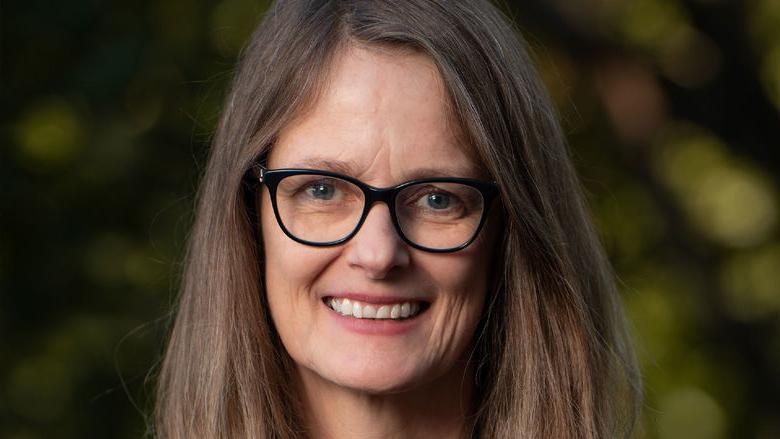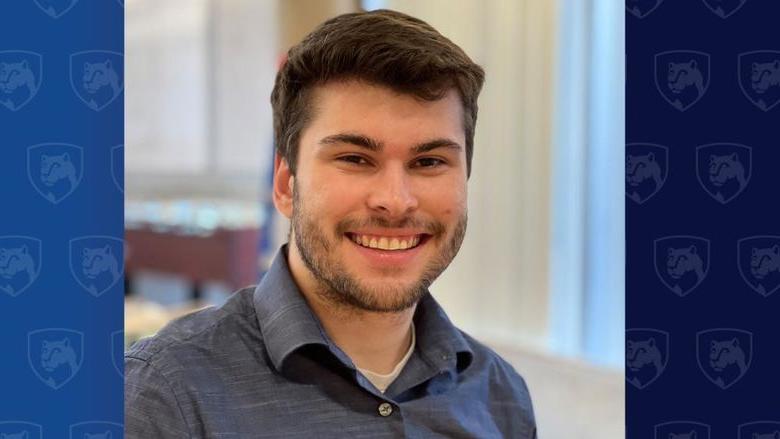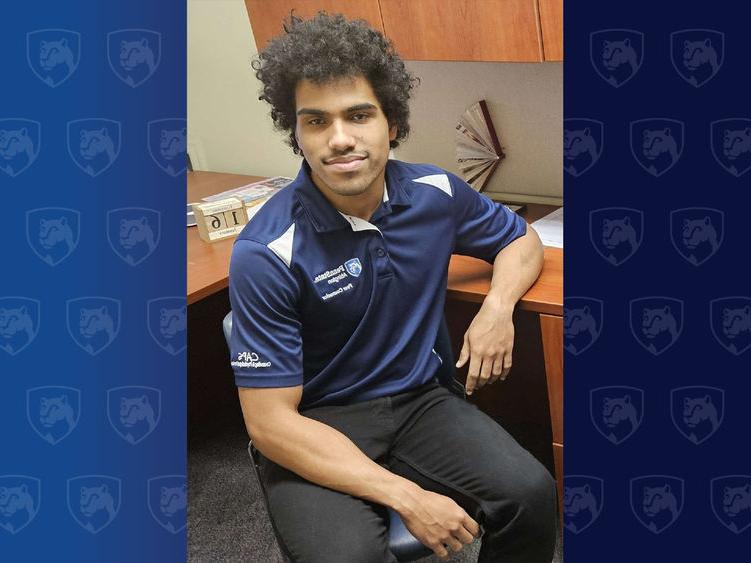
Phillip Diouf will graduate from Penn State Abington in fall 2024 with degrees in biology and psychological and social sciences.
ABINGTON, Pa. — Phillip Diouf’s physical route to next week’s commencement at Penn State Abington was circuitous — he completed his first semester at the University Park campus, withdrew due to health issues, and earned an associate degree from Montgomery County Community College before enrolling at Penn State Abington.
His college experience was always about the journey and never about the grades and awards, although he is graduating with two degrees with honors, won a prestigious University-wide award, and placed in the 99th percentile for the Medical College Admission Test.
“Having those achievements isn’t important. What you are going through and what you want to create in this world is what matters,” said Diouf, who earned degrees in biology and psychological and social sciences.
For years, the allure of a medical career and its potential social and financial benefits held him in sway, but a bout with postural orthostatic tachycardia syndrome (POTS) left him with severe brain fog and reduced stamina.
“I had to do physical therapy, but I didn’t feel like I was making meaningful progress. I thought about taking advantage of mental health services, but I didn’t. What held me back was thinking, why bother? How could they help me?” Diouf said.
When he finally turned to therapy, he found it to be incredibly rewarding not only in his recovery from POTS but also in developing his path forward.
"Therapy is a brilliant tool — not a treatment — to foster wellness. It helped me figure out who I am and the person I want to be. Involving myself in things helped me figure that out. Knowing what I don’t like helps with what I do like,” Diouf said.
When he enrolled at Abington, his intelligence, thoughtfulness and experience volunteering for a crisis hotline brought him to the attention of faculty and staff involved with Counseling and Psychological Services on campus. He was recommended for a place on the peer counseling team, and it became a passion project.
“The vast majority of students struggle with connections and finding their place on and off campus. It paralleled my own experience and felt more like a teaching experience by helping them cultivate a path of their own,” Diouf said.
“We are not alone with our struggles, and we have to make our way out of the ruins,” he added. “Therapy and peer counseling were an impetus to that wisdom. I began writing chapters in my life; that's where my story really begins.”
Along with his coursework in the sciences and social sciences, peer counseling led him to realize his potential path in medicine.
“I would like to be a psychiatrist but earn a dual accreditation in internal medicine or something else. You know the saying that an ounce of prevention is a pound of care? It can be life changing and life saving,” said Diouf, who grew up near the Abington campus.
Abington is a place rich with passion, kindness and compassion. It has been a second home to me.—Phillip Diouf , Class of 2024
His other labor of love is the Sustainability Council at Abington. He was a recipient of the University’s John Roe Sustainability Impact Award for his proactive approach and effective leadership in the group.
“Phillip has been instrumental in advancing sustainability efforts on campus,” said Jose Garcia Cintora, assistant director of residence life. “His involvement with Counseling and Psychological Services and the Sustainability Council has been marked by initiatives that have not only raised awareness but also mobilized the community toward actionable change.”
Diouf said initiatives or events are not the most important aspect of his advocacy.
“It's about sparking a conversation that leads to enduring change,” he said. “Seeing my fellow students take up the mantle of sustainability in their own lives and future careers is truly the most rewarding outcome of our collective efforts. At Penn State, we're not just talking about making a difference; we are actively building a community where sustainability is woven into the very fabric of our daily lives.”
Diouf, who completed his final credits in the summer, said he will always remember Abington as “a place rich with passion, kindness and compassion. It has been a second home to me.”
He advises new students to be aware that they are in a transition period, which can be isolating and confusing.
“Be patient with yourself and allow yourself to be in a space to figure things out. It doesn’t make the process easier; it makes the process easier to cope with,” Diouf said.
About Penn State Abington
Penn State Abington provides an affordable, accessible and high-impact education resulting in the success of a diverse student body. It is committed to student success through innovative approaches to 21st-century public higher education within a world-class research university. With more than 3,100 students, Penn State Abington is a residential campus that offers baccalaureate degrees in 25 majors, accelerated master's degrees, undergraduate research, the Schreyer Honors College, NCAA Division III athletics and more.
